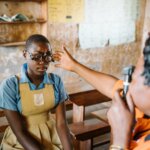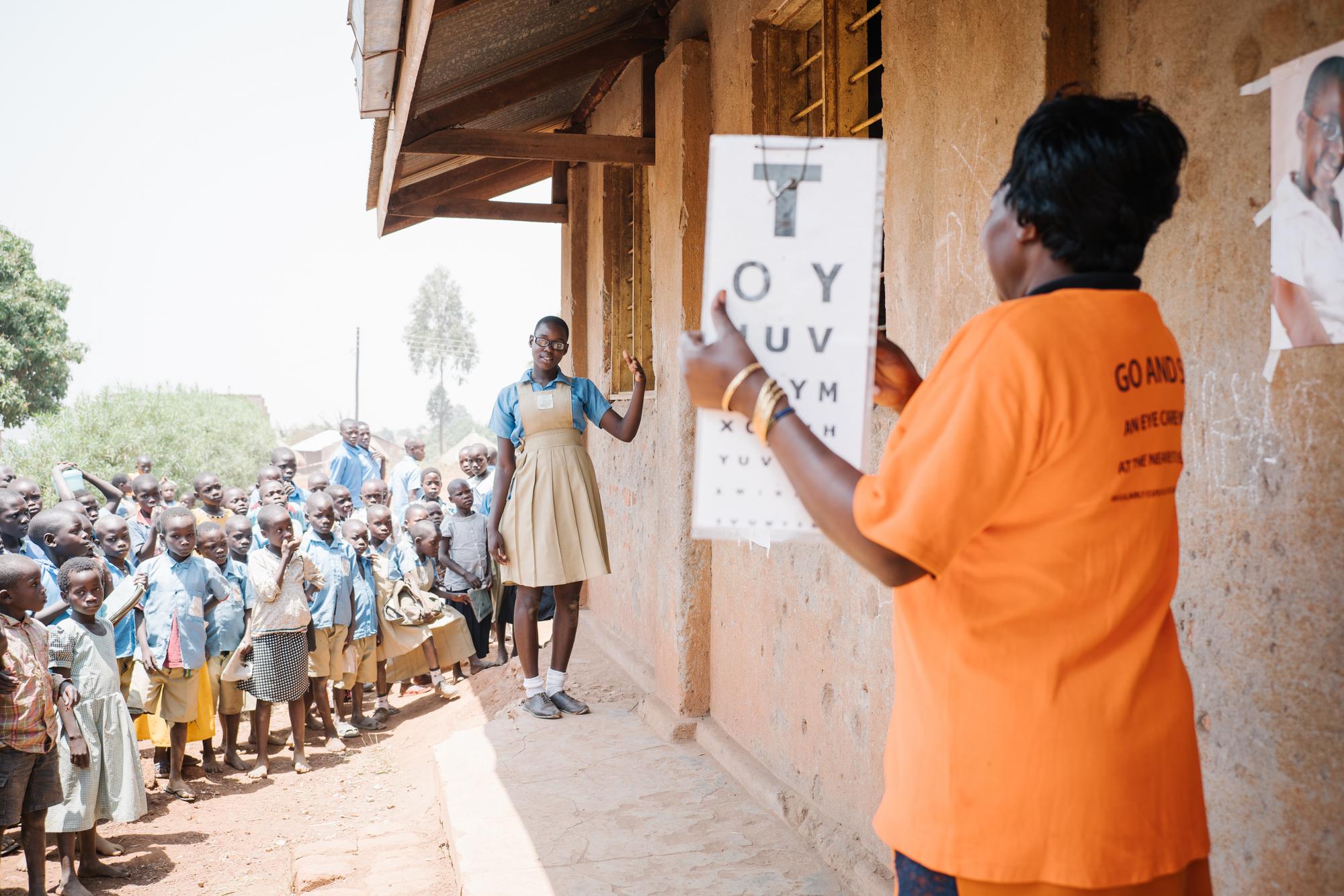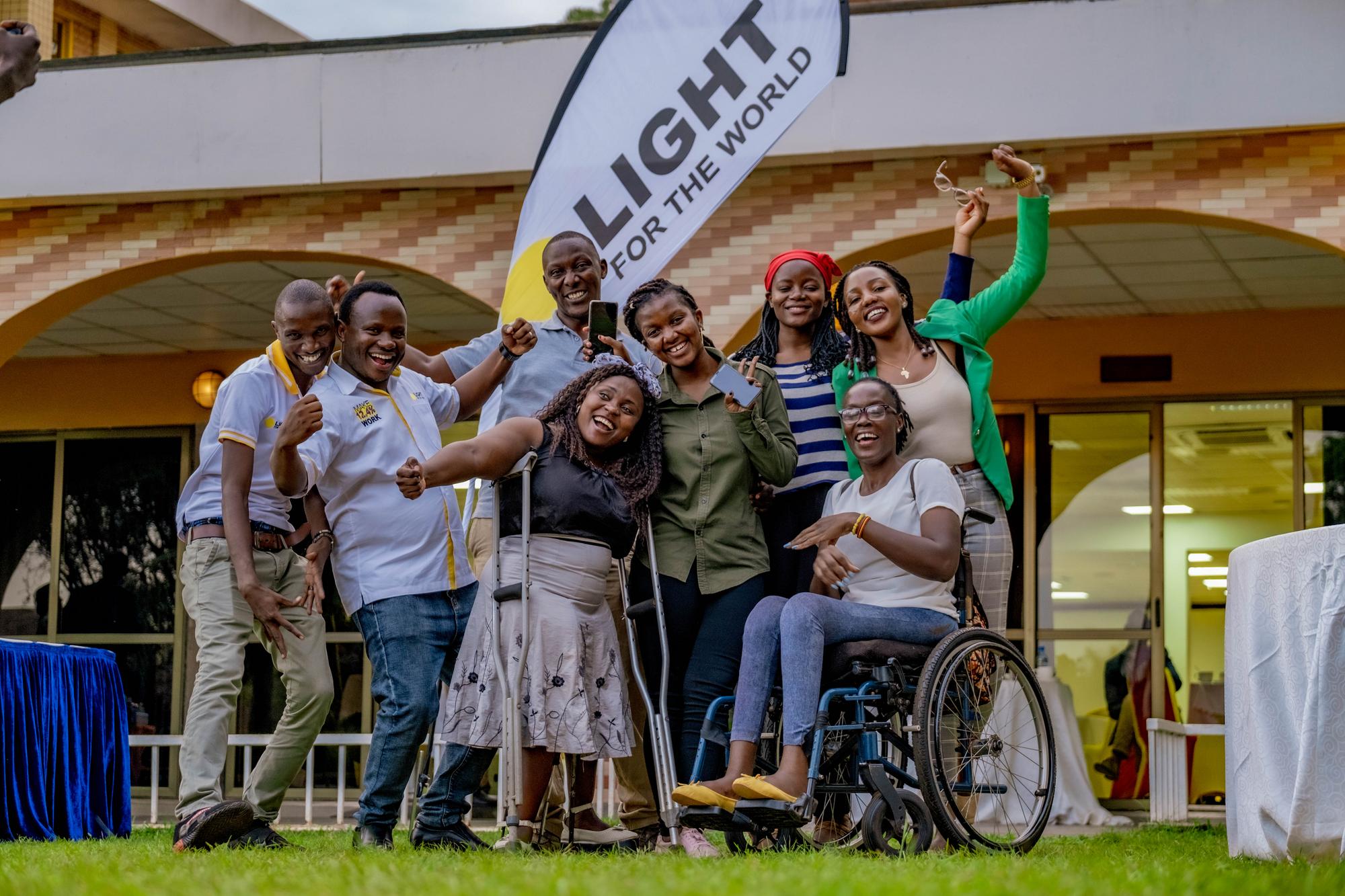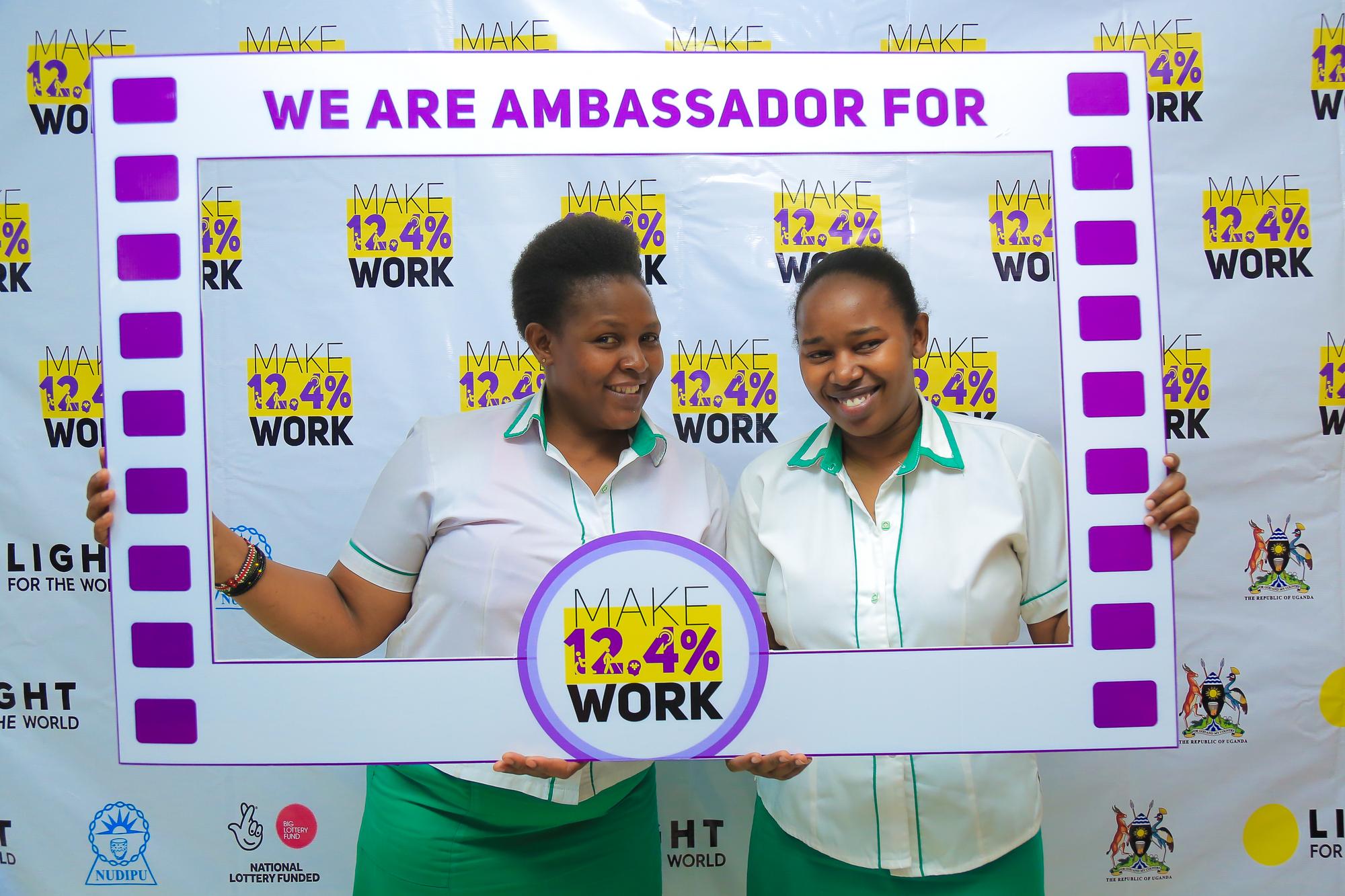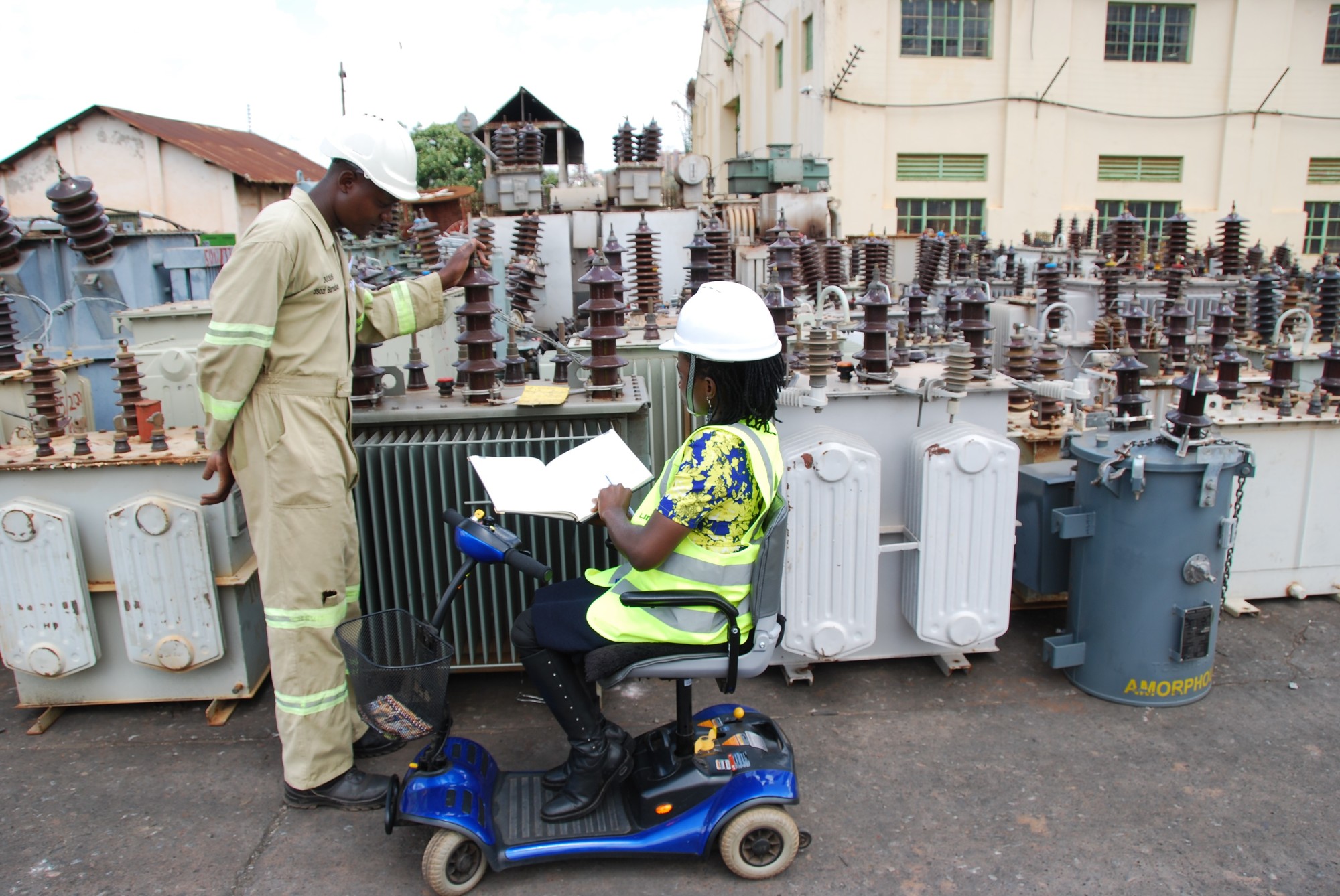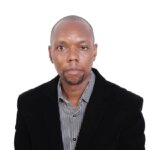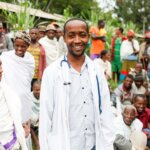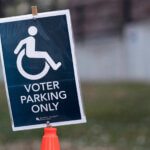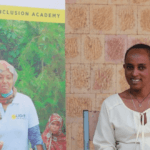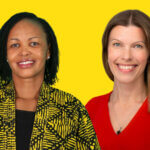Uganda
Light for the World has been operating in Uganda since the early 2000s. Our work comprises two thematic areas: economic empowerment and child eye health. Our innovative disability inclusion work focuses on young people with disabilities, their right to inclusion, and ensuring improved socio-economic living standards.
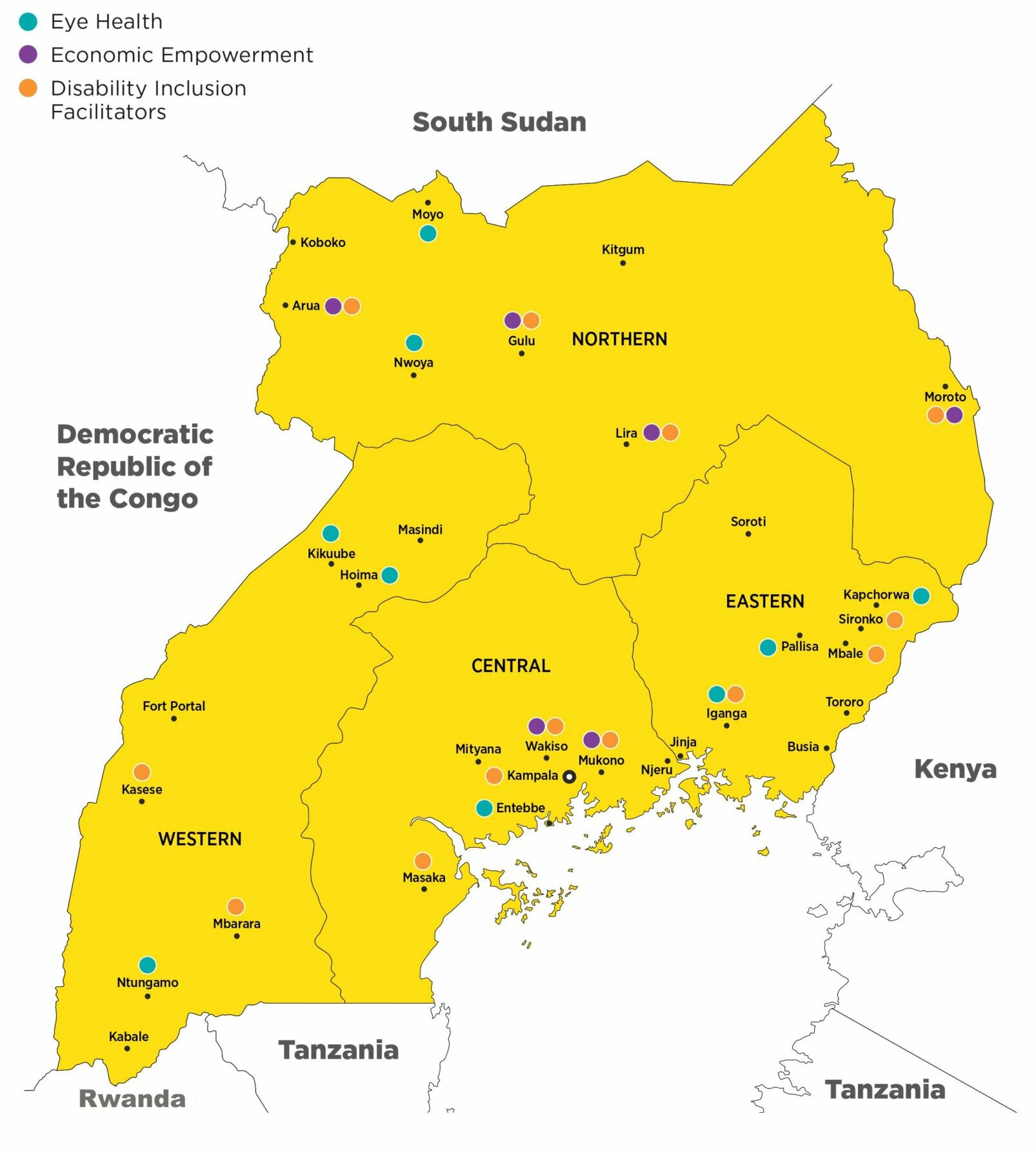
Our Impact in 2022
- More than 242,000 people reached through eye care services
- More than 11,000 people reached through disability-inclusive initiatives
What we do
We enable eye health services
Our EnableMe online platform, for example, provides rich information and meaningful engagement on topics affecting disability rights, reaching an audience that is too often overlooked.
We promote child eye health through the “1,2,3 I can see!” programme. Working in partnership with the Ministry of Health, Ministry of Education and Sports, and local government, we ensure that people have equitable and inclusive access to quality eye health services at all levels of the health system. We also ensure that child eye health services are integrated into routine health care at all levels through an efficient referral system and mobilization strategies. We expand resources by training eye health teams, primary health workers, teachers, and village health teams to address and identify congenital cataracts and other common childhood eye diseases.
We support disability inclusion
We invite people across government, the private sector and civil society to commit to disability inclusion by signing up for our “Make 12.4% Work” initiative.
The initiative is driven by young people with disabilities, known as Disability Inclusion Facilitators (DIFs), who take the lead in approaching potential partners, establishing a working relationship with them, providing awareness training, and giving technical support on how to be disability inclusive. DIFs are active role models for young people with disabilities, training them in entrepreneurship and financial literacy, as well as mobilising people to participate in these opportunities.
We also offer Disability Inclusion Advisory Services to multinational organisations, including INGOs and UN agencies.
We promote inclusive economic empowerment
We work with local governments at the district level to ensure that marginalised women and men with disabilities (including their families and caregivers) who are living in urban and rural areas can earn an income that enables them to meet their household’s basic needs (food, water, shelter, education, sanitation, healthcare and clothing). We also ensure they have equitable access to financial services, both formal (such as banks/microfinance institutions) and informal (such as savings groups).
We implement this work mainly through our flagship programmes: “Mainstreaming Ambition – Vulnerable Youth in Business” and “We Are Able!”.
We champion inclusive education
Our inclusive education programme builds on and uses the structures and networks that exist under our eye health and economic empowerment programmes. We work closely with the Child Eye Health Task Force, which includes representatives from the Ministry of Education and Sports. With them, we ensure that work on child eye health incorporates inclusive education for children with visual impairments, including screening and identification protocols and follow-up inclusive education support to school-aged children treated at child eye health centres.
We leverage our partnerships in the economic empowerment programme, and support NGO partners to include children with disabilities in their mainstream education programmes while offering them tools and technical expertise on inclusion.
